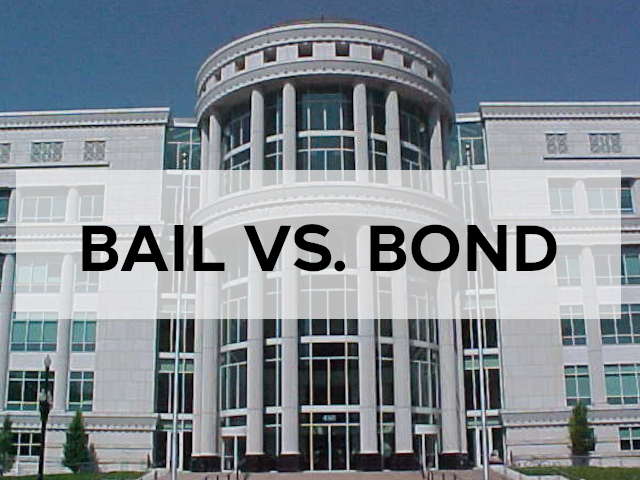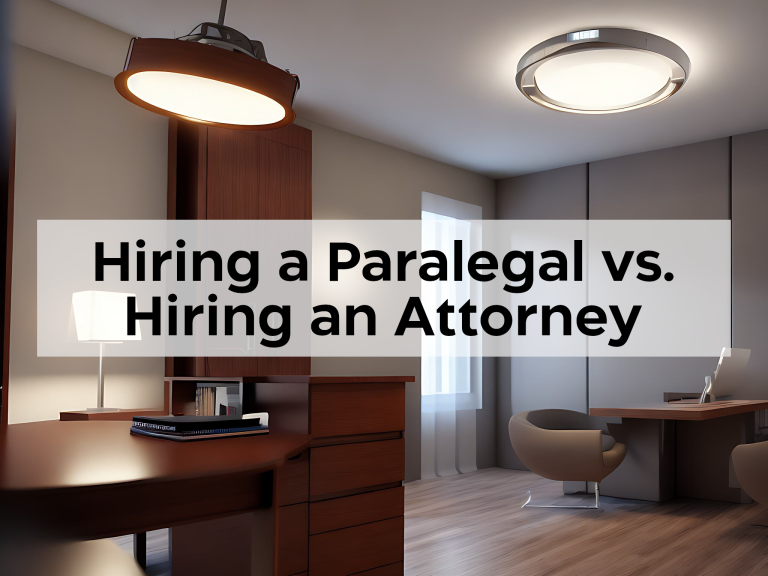DISCLAIMER: Altiorem Legal Services (hereinafter, “Altiorem”) cannot and does not provide legal advice. Altiorem is not a law firm; Altiorem’s staff are not attorneys, cannot act as attorneys, and do not act as attorneys; and any information provided by Altiorem in this article or otherwise is not a substitute for legal advice from an attorney. The information contained in this article should not be construed as legal advice, as it is not intended to be legal advice; the information in this article is provided for educational purposes only. Again, none of the information provided in this article should be construed as legal advice, and nobody should rely on or use the information contained in this article in their legal matters.
WHAT IS BAIL?
Bail is the amount of money defendants must post to be released from custody until their trial.1American Bar Association, How Courts Work (Sept. 9, 2019), https://www.americanbar.org/groups/public_education/resources/law_related_education_network/how_courts_work/bail/.
It can take a long time for a case to go to trial. Between initial investigations, discovery, court continuances, and scheduling issues with courts, a defendant might not face trial for months or even years. The court sets a bail so that a defendant does not have to be incarcerated while they await trial. A bail is not a punishment or a fine, but rather a way to try and ensure that a defendant will appear for all of their required court appearances, including trial. After a defendant’s trial is complete, the bail money is returned to them.
The Eighth Amendment to the United States Constitution states that excessive bail shall not be required.2Congress.gov, Constitution of the United States: Eighth Amendment, https://constitution.congress.gov/constitution/amendment-8/#:~:text=Excessive%20bail%20shall%20not%20be,cruel%20and%20unusual%20punishments%20inflicted. (last visited Jan. 23, 2023). This means that while a court can set a bail amount, it cannot be excessive.
Exceptions to Granting Bail
Utah Code § 77-20-201 states that an individual charged with, or arrested for, a criminal offense shall be admitted to bail as a matter of right, except if the individual is charged with the following:
- A capital felony when the court finds there is substantial evidence to support the charge.
- A felony committed while on parole or probation for a felony conviction or while free on bail awaiting trial on a previous felony charge when the court finds there is substantial evidence to support the current felony charge.
- A felony when there is substantial evidence to support the charge, and the court finds, by clear and convincing evidence, that the individual would constitute a substantial danger to any other individual in the community or is likely to flee the jurisdiction of the court if released on bail.
- A felony when the court finds there is substantial evidence to support the charge and the court finds clear and convincing evidence that the individual violated a material condition of release while previously on bail.
- A domestic violence offense if the court finds:
- That there is substantial evidence to support the charge; and
- By clear and convincing evidence that the individual would constitute a substantial danger to an alleged victim of domestic violence if released on bail.
- The offense of driving under the influence or driving with a measurable controlled substance in the body if:
- The offense results in death or serious bodily injury to an individual; and
- The court finds:
- There is substantial evidence to support the charge; and
- By clear and convincing evidence that the person would constitute a substantial danger to the community if released on bail.
- A felony violation inciting a riot if there is substantial evidence to support the charge and the court finds, by clear and convincing evidence, that the individual is not likely to appear for a subsequent court appearance.
A judge will also consider a defendant’s flight risk if the defendant has the means to flee, and sometimes will even take a defendant’s passport before being released.
Bail in Anticipation of Sentencing
A court may require a defendant to post bail while waiting for sentencing. Suppose a defendant has been convicted of a crime but not yet sentenced. In that case, the court must order that the convicted defendant awaiting imposition or execution of the sentence be detained unless the court finds, by clear and convincing evidence presented by the defendant, that the defendant is not likely to flee the jurisdiction of the court if released and doing so will not pose a danger to the physical, psychological, financial, or economic safety or well-being of any other person or the community if the defendant is released.3Utah Code § 77-20-301.
Forfeiting Bail
If a defendant fails to appear for the required hearings, their bail will be forfeited, and a warrant for their arrest will be issued. It is unlikely that a defendant who has had their bail forfeited will be granted another chance to post bail; it is more likely that they will be incarcerated for the remainder of their case or until sentencing.
Releasing without Bail
A judge may also release a defendant on their own recognizance. This means that the defendant may be released without payment of money on the promise that the defendant will appear for all hearings and the trial. The judge considers the defendant’s employment, roots in the community, or other personal circumstances indicating that they will not flee.4Association, supra.
WHAT IS A BOND?
A bond is an obligation to pay a specified amount of money.5Wex Definitions Team, Bond, https://www.law.cornell.edu/wex/bond#:~:text=Primary%20tabs,interest%20on%20that%20cash%20later. (last updated June 2022).
Although “bail” and “bond” are sometimes used interchangeably in legal discussions, bail is directly paid by a defendant to the court, whereas a bond is paid by another person or entity on behalf of a defendant who cannot afford bail. A bond is paid by a “bail bondsman,” who provides money to the court to cover the defendant’s bail—establishing a “surety,” that is, the assumption of direct liability for another’s obligation,6Legal Information Institute, Surety, https://www.law.cornell.edu/wex/surety (last visited Jan. 23, 2023). such as a bondsman paying bail on behalf of a defendant.
CONTACT US TODAY!
Do you need help with bail or bonds? Let Altiorem help you today with affordable, top-quality legal services.
Expertise. We are knowledgeable, skilled, and experienced with bail and bonds and in drafting all manner of legal documents, such as briefs, pleadings, motions, memoranda, letters, contracts, etc. If you need a top-quality, professional, excellently written, well-researched, and compelling legal document drafted, then look no further!
Quality. We produce top-quality, properly written legal documents with impeccable grammar, punctuation, spelling, structure, flow, information, compelling legal arguments, and persuasive legal conclusions. You can see the quality of our work on our work samples page, where you can peruse and evaluate our writing, as well as our other blog posts.
Experience. Our paralegals are highly experienced in working with attorneys, other paralegals, and court personnel.
Customer Care. Navigating the Utah legal system can be daunting and confusing. Let Altiorem relieve your stress and be your guide. Altiorem has a team of professional paralegals ready to work for you. We want to give you the best chance at getting an outcome for your case that you will be happy with. We are happy to receive documents via email from you, speak with you on the phone, look through court files, or even translate documents (English / Spanish)!
Accessible. If you are interested in retaining our services, we can be contacted at (801) 855-6541 (text or call) and at altiorem@altioremlegalservices.com. If you have a project in mind that you would like us to work on, please click here to send us a project request and get a quote. Alternatively, you can send us an email detailing the work you need to be performed, and a real person will respond promptly.
Thank you for your attention and consideration.



